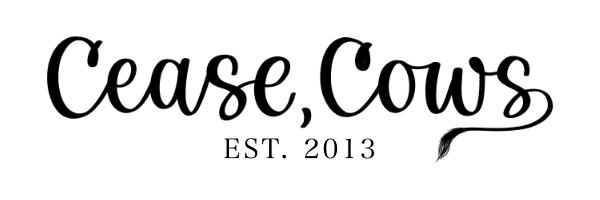She carries a scorched copy of Ovid’s Metamorphoses in a Ziploc bag. She’s torn off the back cover and fashioned a new spine out of cardboard. When we scavenge, I sift through what’s left in search of cans of food while she searches for blank paper or anything that will serve as thread. At night, by the fires, she sews fresh pages into the back of the book in order to finish it. She says the book contains every story ever told except this one.
When we met, back in college, she was studying Classics, and at night we would read to each other under the soft glow of cheap lamps. That was back when we bought bars of chocolate and hoppy beers in big bottles from brightly lit grocery stores. We ate chocolate ice cream with swirls of peanut butter and took baths together in clean tubs where water flowed from the tap. We fucked on a mattress on her bedroom floor because we took bed frames for granted. Back then, we told each other stories about ourselves. We imagined heading home on subways after long days at work. Imagined ourselves raising children who would love us. We saw ourselves withered and pruned, years from then, dying within days of each other.
At night, she still reads to me, her haunted face behind the fire. Her hair is growing back to its natural color. I find reassurance in her hair’s growth, but her eyes become less and less familiar with each day, like a word you say over and over again until it sounds strange. When she sleeps, I sometimes slide her book out of the Ziploc bag and let my eyes skim over her passages, but I don’t retain them. If it’s cold out, we sleep together. If it’s warm, we sleep on opposite sides of the fire like dogs.
In the mornings, she sharpens her pencils with a pocketknife and we set out to follow trails in the dust. Everything is the same color. I reach for her hand, but she writes too much. She doesn’t read me what she writes, because she says we have to start over. Every day is a starting over. I can almost recite Ovid’s account of creation by memory. Nothing but weight without motion, a general conglomeration of matter composed of disparate, incompatible elements…and looking around, they have become the only words that seem to hold any meaning. It’s as if we have started over, and the gods have yet to separate the earth and sky. Thus clay, so lately no more than a crude and formless substance…
I count how many days go by that Nettie doesn’t say my name. On the 26th day, I ask her, and she says it’s because names distinguish things from other things. We’re sitting on the brittle ground. There is no wind, and the clouds seem like bulbous mirrored images of Earth. Nettie is cradling her bottom lip in her teeth, a stray clump of hair cascading down her forehead. I lean over to tuck it behind her ear, and she swats at my hand as her pencil scrolls across a ripped piece of brown paper sack.
“How do you find so many words?” I ask. “Here?”
She stops writing and looks up at me, the earth reflected in her eyes.
“Hi, John,” she says.
She starts writing again.
During the days, we walk and I say words over and over again in my head. Random words that pop in and out of my brain. Words that I once knew held meaning: cochlea, summer, 11th Avenue, farmer, soda. I say these words in my head, and then I try and pay attention to the formation of my tongue and my lips as I say these words out loud. I think I see them come out of my mouth and drift off in spirals of dust.
When she reads to me, I feel closest to her. Like her words are a rope between us, keeping each other from floating away. When she writes, she lays the plastic Ziploc bag flat on the ground and smooths it out with her hands. I know that next to the Metamorphoses, it is her favorite thing. I think she knows that without the other, one would die, and the other would become irrelevant.
I say her name over and over again. Form it in my mouth and hold it there.
And sank through the downward thrust of its weight…
When it’s cold, we braid our limbs together and match up our breathing. She always falls asleep before me, and I lay there thinking. I wonder if anyone will get to read the final version of Nettie’s Metamorphosis. Will they read about the fires that swept the new surface black, or the steel frames of buildings through which you can see the pulsing oranges of the marred sky, or the shamrock and mustard that grow in potholes that will soon mass to new caves, or what a symphony of sewer frogs in copper marshes sounds like. I imagine Nettie’s mouth with grass growing from it as clouds weave needles of rain. Come the next generation of gatherers and gardeners. Cartographers. The archaeologists and paleontologists with their new tools. What will they find out? Will they know what we went through to get here? Will we become pools of black tar? In this place where, in the depths of night, Nettie sleeps, I sift through her Metamorphosis. I try and think of my own words to write, but all I can think to say is I’m sorry, although for what I can’t remember.
–
Grant Gerald Miller was born in Memphis, Tennessee. He currently studies creative writing and book arts at The Independent Publishing Resource Center in Portland, Oregon. His work has appeared in Slightly West, On Uneven Ground, and is forthcoming in Qu and Fish Magazine‘s Short Fiction Anthology.
Lead image: “campfire” (via Flickr user Mathias Erhart)


So glad for your writing, and for the dimensionality you create with your words.
[…] by this amazing piece of writing by Grant Gerald Miller, appearing recently on Cease, Cows, I decided to take a stab at flash […]
Gorgeous and dark and earthy. Love this.
I love this! Such a cool story! Keep these creative works coming. If you’re into zombie apocalypses, check out my blog: http://www.theapocalypsebites.com. I think it’ll be right up your alley. Thanks again for sharing! 🙂
This is so beautiful I cried.
“I count how many days go by that Nettie doesn’t say my name. On the 26th day, I ask her, and she says it’s because names distinguish things from other things.”
This is just beautiful.